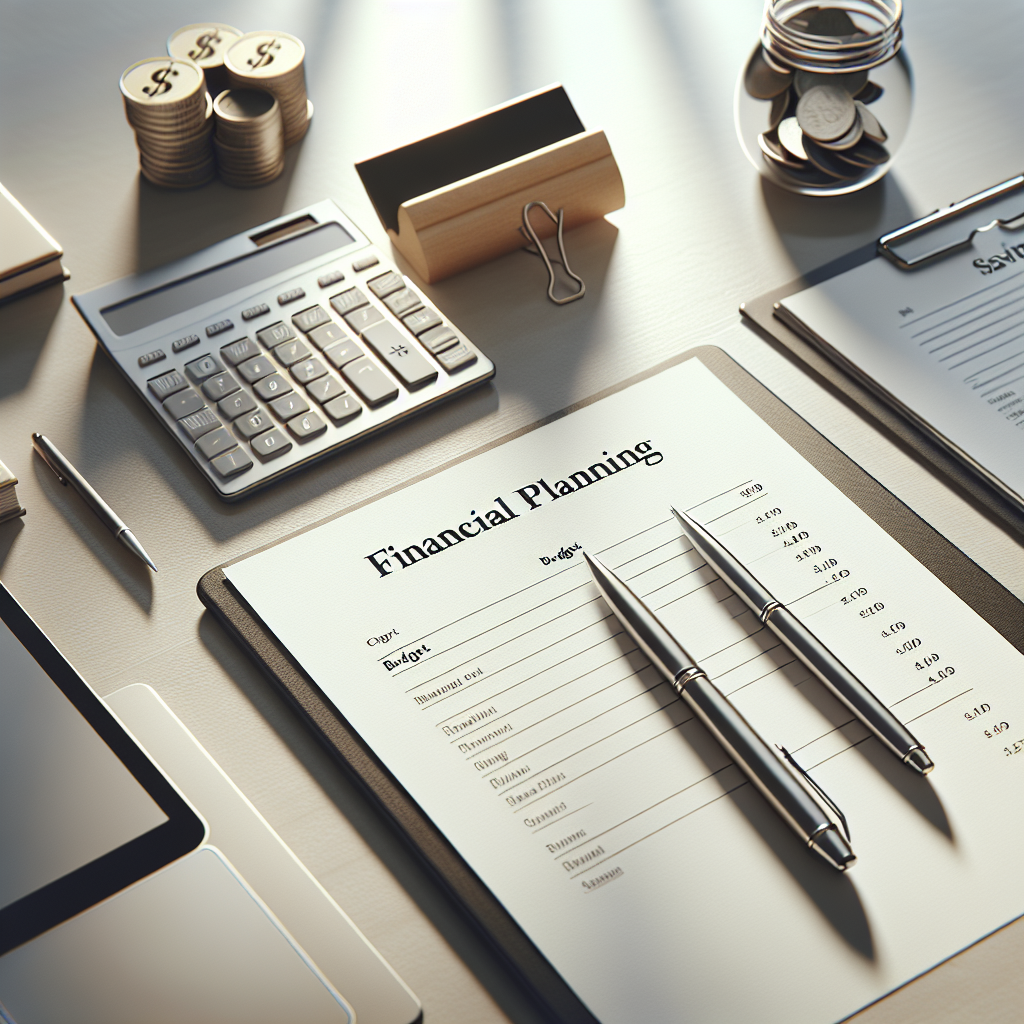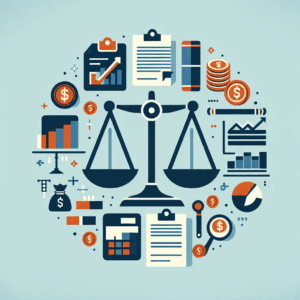📜 Table of Contents
Facing the possibility of personal bankruptcy can be one of the most stressful and frightening experiences in a person’s life. It represents a moment of profound financial crisis, where debts have become so overwhelming that there seems to be no other way out. However, bankruptcy is not an inevitability; it is often the end result of a series of financial missteps, unexpected life events, and a lack of a solid financial plan. The good news is that by adopting a proactive, disciplined, and educated approach to your personal finances, you can build a strong foundation that will not only help you avoid bankruptcy but will also lead you toward long-term financial security and peace of mind.
This comprehensive guide will provide you with rock-solid tips and actionable advice for avoiding personal bankruptcy. You will learn the critical first steps of assessing your financial health, creating a realistic budget that puts you in control of your money, and developing powerful strategies for tackling and eliminating debt. We will explore how to build an emergency fund to protect you from unexpected financial shocks, ways to increase your income, and the importance of seeking professional help before your situation becomes unmanageable. This guide will also cover the crucial mindset shifts needed to build a healthy and sustainable relationship with money.
The path away from bankruptcy is paved with conscious choices and consistent habits. We will provide specific, practical examples, such as the “debt snowball” and “debt avalanche” methods for paying down debt, and suggest tools and resources to help you along the way. By implementing the strategies outlined in this guide, you can take decisive action to get your finances back on track, regain your sense of control, and build a brighter, more secure financial future for yourself and your family.
Conducting a Thorough Financial Self-Assessment
Gathering All Your Financial Documents
The first step toward avoiding bankruptcy is to get a crystal-clear picture of your current financial situation. You cannot solve a problem that you do not fully understand. This means gathering every single document related to your finances. This includes your most recent bank statements, credit card statements, auto loan statements, mortgage or rent statements, student loan statements, personal loan documents, and any records of other debts you may have. You also need to gather your recent pay stubs or other proof of income.
Having all of this information in one place will allow you to see the full scope of your financial life. It may be an uncomfortable or even scary process, but it is an absolutely essential one. Create a dedicated folder or binder for all these documents. This act of organizing your financial paperwork is the first powerful step toward taking back control. It provides the raw data you will need for the next crucial steps of creating a budget and a debt repayment plan.
Calculating Your Net Worth and Debt-to-Income Ratio
Once you have all your documents, the next step is to calculate two key numbers: your net worth and your debt-to-income ratio. Your net worth is a snapshot of your overall financial health. To calculate it, you simply add up the value of all your assets (cash, savings, investments, home equity, car value, etc.) and subtract the total of all your liabilities (credit card debt, loans, mortgage, etc.). A positive net worth is a good sign, while a negative net worth indicates that you owe more than you own and that immediate action is needed.
Your debt-to-income (DTI) ratio is another critical metric. It is the percentage of your gross monthly income that goes toward paying your monthly debt payments. To calculate it, add up all your monthly debt payments and divide that number by your gross monthly income. Lenders often look at this ratio to assess your ability to take on new debt, but it is also a powerful tool for you to gauge your own financial risk. A DTI ratio below 36% is generally considered healthy, while a ratio above 43% may indicate that you are overextended and at a higher risk of financial distress.
Creating and Sticking to a Realistic Budget
Tracking Your Income and Expenses
A budget is the single most powerful tool for taking control of your finances. The foundation of any good budget is a thorough understanding of where your money is coming from and where it is going. For one month, track every single dollar you spend. You can do this using a simple notebook, a spreadsheet, or a budgeting app like Mint or YNAB (You Need A Budget). Be diligent and record everything, from your morning coffee to your monthly rent payment.
At the end of the month, categorize all your expenses into groups such as housing, transportation, food, utilities, debt payments, and entertainment. This process will likely be eye-opening. You may be surprised to see how much you are spending on non-essential items like dining out or subscription services. This detailed tracking is not about judging yourself; it is about gathering the data you need to make informed decisions about your spending.
The 50/30/20 Budgeting Rule
Once you have a clear picture of your spending, you can create a forward-looking budget. A simple and effective framework to start with is the 50/30/20 rule. This rule suggests allocating 50% of your after-tax income to your “needs,” 30% to your “wants,” and 20% to savings and debt repayment. Needs are your essential expenses, such as housing, utilities, transportation, and groceries. Wants are your non-essential lifestyle expenses, like entertainment, dining out, and hobbies.
The 20% for savings and debt repayment is where you can make a huge impact on your financial future. If you are trying to avoid bankruptcy, you will want to allocate as much of this 20% (and potentially some of the 30% from your wants) as possible toward paying down your high-interest debt. The 50/30/20 rule is not a rigid law, but rather a flexible guideline. You can adjust the percentages to fit your specific situation, but it provides a great starting point for creating a balanced and sustainable budget.
Cutting Unnecessary Expenses
After you have tracked your spending and created a budget framework, the next step is to identify areas where you can cut back. Go through your categorized expenses and look for non-essential “wants” that you can reduce or eliminate. This could mean canceling subscription services you rarely use, packing your lunch instead of buying it every day, brewing your coffee at home, or finding free entertainment options like visiting a park or a library.
This process is about making conscious choices that align with your financial goals. It is not about depriving yourself of everything you enjoy, but rather about being more intentional with your spending. Every dollar you save by cutting an unnecessary expense is a dollar you can redirect toward paying down your debt and building a more secure financial foundation. These small changes can add up to a significant amount of money over time.
Developing a Strategic Debt Repayment Plan
The Debt Snowball Method
When you are facing a mountain of debt, it can be hard to know where to start. The debt snowball method is a popular and highly motivating strategy. With this method, you list all of your debts from the smallest balance to the largest, regardless of the interest rate. You make the minimum payment on all your debts except for the smallest one. For the smallest debt, you put every extra dollar you can find in your budget toward paying it off as quickly as possible.
Once that smallest debt is paid off, you “snowball” the payment you were making on it (plus the minimum payment) and apply it to the next-smallest debt. This creates a powerful momentum. The psychological boost of paying off a debt completely, even a small one, can give you the motivation you need to keep going. The debt snowball method is all about creating quick wins and building confidence on your debt-free journey.
The Debt Avalanche Method
The debt avalanche method is another effective strategy, and from a purely mathematical standpoint, it will save you the most money in interest over time. With this method, you list all of your debts from the highest interest rate to the lowest, regardless of the balance. You make the minimum payment on all your debts except for the one with the highest interest rate. You then put every extra dollar toward that high-interest debt.
Once the highest-interest debt is paid off, you take the money you were paying on it and apply it to the debt with the next-highest interest rate. While this method may not provide the quick psychological wins of the snowball method, it is the most financially efficient way to pay off your debt. The choice between the snowball and avalanche method comes down to personal preference: do you need the motivation of quick wins, or are you more driven by the desire to save the most money on interest?
Debt Consolidation and Negotiation
If you are juggling multiple high-interest debts, such as credit card balances, debt consolidation may be a good option to consider. Debt consolidation involves taking out a new, single loan to pay off all your other debts. The goal is to get a lower interest rate on the new loan than what you are currently paying on your various debts. This can simplify your monthly payments and save you a significant amount of money in interest.
Another strategy is to try to negotiate directly with your creditors. If you are struggling to make your payments, call your credit card company or lender and explain your situation. They may be willing to work with you by lowering your interest rate, waiving some fees, or setting up a more manageable repayment plan. Creditors would often rather get paid something over a longer period than have you default on the debt entirely. It never hurts to ask, and a successful negotiation can provide some much-needed breathing room in your budget.
Building an Emergency Fund
The Importance of a Financial Safety Net
One of the main reasons people fall into a debt spiral is that they are not prepared for unexpected expenses. A car repair, a medical bill, or a sudden job loss can quickly derail a tight budget if there is no financial cushion to fall back on. This is why building an emergency fund is a non-negotiable step in avoiding bankruptcy. An emergency fund is a stash of cash, kept in a separate, easily accessible savings account, that is reserved for true emergencies only.
Having an emergency fund provides a crucial buffer between you and financial disaster. It prevents you from having to rely on high-interest credit cards or personal loans to cover unexpected costs, which can quickly lead to a cycle of debt. The peace of mind that comes from knowing you have a safety net in place is invaluable and can significantly reduce your financial stress.
How to Start and Grow Your Emergency Fund
If you are currently in debt, the idea of saving money can seem impossible. However, it is important to start small. A common recommendation is to start by saving up a “starter” emergency fund of $500 or $1,000. This initial goal is manageable and provides a small cushion while you are aggressively paying down your debt. You can build this starter fund by cutting expenses, selling items you no longer need, or taking on a temporary side job.
Once you have paid off your high-interest debt, your next major financial goal should be to grow your emergency fund to cover three to six months’ worth of essential living expenses. This larger fund will provide you with a much more robust safety net in the event of a major life event, such as a long-term job loss. Automate your savings by setting up a recurring transfer from your checking account to your emergency savings account each payday. Even a small amount saved consistently will grow into a substantial fund over time.
Increasing Your Income
Exploring a Side Hustle
While cutting expenses is a crucial part of getting your finances in order, there is a limit to how much you can cut. On the other hand, there is theoretically no limit to how much you can earn. Increasing your income, even by a small amount, can supercharge your debt repayment and savings goals. A side hustle is a flexible way to earn extra money outside of your main job.
Think about the skills and interests you have that you could monetize. If you are good at writing, you could do some freelance writing or editing. If you are crafty, you could sell your creations on a platform like Etsy. The rise of the gig economy has also created many opportunities, from driving for a rideshare service like Uber or Lyft to delivering food for DoorDash. Even a few extra hundred dollars a month from a side hustle can make a massive difference in your financial situation.
Asking for a Raise or Seeking a Better-Paying Job
Another way to increase your income is to focus on your primary career. If you have been a valuable employee and have taken on more responsibility over time, it may be time to ask for a raise. Do your research to find out what the market rate is for your position and be prepared to make a strong case for why you deserve a pay increase. Document your accomplishments and contributions to the company to support your request.
If a significant raise is not possible at your current job, it may be time to start looking for a new, better-paying position. Update your resume, start networking, and see what other opportunities are out there. Sometimes, the fastest way to get a substantial increase in income is by changing jobs. While this can be a daunting process, it can also be a powerful move to accelerate your journey to financial health.
Seeking Professional Help
The Role of a Non-Profit Credit Counseling Agency
If you are feeling overwhelmed by your debt and are not sure where to start, seeking help from a non-profit credit counseling agency can be a very wise move. Reputable credit counselors can provide a wide range of services, often for free or at a low cost. They can help you create a realistic budget, review your credit report with you, and provide valuable education on personal finance.
One of the most valuable services they offer is a Debt Management Plan (DMP). With a DMP, the credit counselor will negotiate with your creditors on your behalf to try to lower your interest rates and create a single, manageable monthly payment. You then make one payment to the credit counseling agency each month, and they distribute the funds to your various creditors. A DMP can be a powerful tool for getting out of debt faster and more affordably. Look for an agency that is accredited by the National Foundation for Credit Counseling (NFCC).
When to Consult with a Bankruptcy Attorney
While the goal of this guide is to help you avoid bankruptcy, there are some situations where it may be the most responsible option. If your debt is truly insurmountable and you have exhausted all other alternatives, a consultation with a qualified bankruptcy attorney is a necessary step. Most bankruptcy attorneys offer a free initial consultation where they can review your financial situation and advise you on your legal options.
There are two main types of personal bankruptcy: Chapter 7 and Chapter 13. A Chapter 7 bankruptcy involves liquidating some of your assets to pay off your debts, while a Chapter 13 bankruptcy involves creating a three- to five-year repayment plan. An attorney can help you understand the pros and cons of each and determine which, if any, is the right path for you. Seeking legal advice does not mean you have to file for bankruptcy; it is simply about understanding all your options from a legal expert.
Conclusion
Avoiding personal bankruptcy is a challenging but achievable goal that requires a fundamental shift in your approach to personal finance. It is a journey that begins with the courage to face your financial reality head-on, followed by the discipline to create and stick to a realistic budget. By strategically tackling your debt, whether through the motivating snowball method or the efficient avalanche method, you can begin to break the cycle of financial stress and build momentum toward a debt-free life. The creation of an emergency fund stands as your crucial defense against the unexpected shocks that can so easily derail financial progress.
Remember that you do not have to walk this path alone. Increasing your income through a side hustle or career advancement, and seeking the guidance of professional credit counselors can provide the additional resources and support you need. The rock-solid tips in this guide offer a comprehensive roadmap to not only steer clear of bankruptcy but to build a future of financial resilience, stability, and peace of mind. By committing to these principles, you are taking the most important step of all: investing in your own long-term financial well-being.
❓ Frequently Asked Questions
🚀 Keep Exploring
Discover more articles, guides, and tools in Banking & Savings


